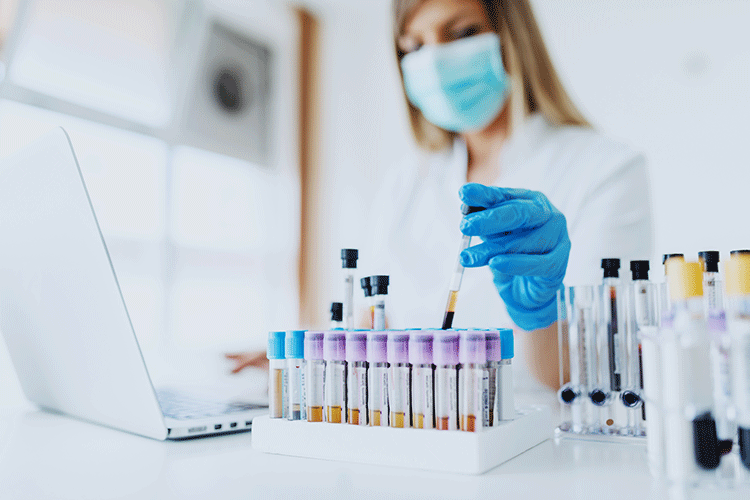Longevity refers to the length and quality of life, often associated with living beyond the average lifespan while maintaining health and vitality.
In recent years, longevity has been redefined as a luxury in contemporary society, where the pursuit of a longer, healthier life has gained prominence. This shift in perspective underscores not just the desire to extend life but also to enhance its quality, reflecting a deeper understanding of wellness as an essential component of overall life satisfaction.
Societal attitudes toward aging and health have evolved significantly. Traditionally, aging was often viewed with a sense of inevitability, accompanied by a decline in physical and mental faculties. However, advancements in medical science, nutrition, and lifestyle choices have led to a paradigm shift where aging is seen as a phase rich with potential. This shift has led to a growing emphasis on preventive health measures and active lifestyles, ultimately aligning the aspirations of longevity with those of luxury living.
Read More: How To Improve Your Lifestyle
The importance of longevity extends beyond individual health; it has profound economic implications. As populations age, there is a pressing need for solutions that address the healthcare demands of older adults. A focus on longevity can lead to healthier aging populations, thus reducing healthcare costs and allowing individuals to maintain their independence longer. Additionally, the luxury market has increasingly recognized the intersection of wellness and longevity, positioning products and services that promote health as desirable commodities.
In today’s wellness-centric economy, longevity is increasingly regarded as a luxury good. The desire to biohack one’s life—utilizing various methods to optimize health and extend lifespan—reflects a broader cultural trend toward valuing health as a foundational element of wealth and prosperity. This concept of longevity invites further exploration into biohacking techniques aimed at enhancing health and well-being, underscoring the evolving landscape of how we perceive aging and vitality.
Introduction to Biohacking: The Science of Self-Improvement
Biohacking, a term that encapsulates the art and science of self-improvement, has gained traction among health enthusiasts and longevity seekers. At its core, biohacking involves a personalized approach to enhancing health and well-being through experimental techniques. These techniques range from dietary adjustments to technological innovations designed to optimize one’s physical and mental health.
The types of biohacking are diverse, catering to various aspects of life. Nutrition biohacking focuses on the modification of dietary habits to achieve better health outcomes. This might involve the adoption of specific diets such as ketogenic, vegan, or intermittent fasting to promote weight management and longevity. Additionally, exercise biohacking emphasizes tailored physical activities aimed at maximizing the efficiency of workouts, with a focus on high-intensity training or unique exercise regimens that cater to personal fitness goals.
Sleep, an often overlooked component, also plays a pivotal role in biohacking practices. Individuals are encouraged to harness techniques such as sleep tracking and the optimization of sleep environments, which significantly enhance restorative rest and recovery. Mental health biohacking is equally vital, as practices such as mindfulness meditation or cognitive behavioral techniques contribute to an individual’s emotional resilience and overall well-being.
Read More: The Dangers of a Sedentary Lifestyle
Technology has further expanded the frontiers of biohacking. Wearable devices, mobile applications, and data tracking tools allow individuals to monitor physiological metrics closely and make informed decisions based on real-time feedback. This fusion of technology and self-experimentation exemplifies the modern biohacker’s journey toward achieving greater control over health and life longevity.
A successful biohacking journey requires a mindset geared toward experimentation and self-discovery. Individuals must be willing to test various approaches, analyze results, and adapt their strategies accordingly. Prominent examples of successful biohackers illustrate the profound impact of understanding and improving one’s biology through deliberate choices and lifestyle adjustments.
Practical Biohacking Strategies for Longevity
Embracing the concept of biohacking can significantly influence one’s journey toward enhanced longevity and overall health. By implementing specific, actionable strategies, individuals can create a personalized approach to optimize their well-being. One of the foremost strategies involves dietary modifications. Adopting a nutrient-dense diet rich in vegetables, fruits, whole grains, and healthy fats can lower the risk of chronic diseases and support longevity. Incorporating intermittent fasting can also be beneficial, as it encourages cellular repair processes and boosts metabolic health.
In parallel with dietary changes, exercise regimens play a crucial role. Regular physical activity, ideally combining both aerobic and strength training exercises, is linked to improved cardiovascular health and increased muscle mass, both vital for longevity. It is essential to personalize the exercise routine to suit one’s fitness level and goals; a consistent approach fosters long-term adherence and better results.
Sleep optimization is another pillar of longevity that often goes overlooked. Ensuring quality sleep by maintaining a consistent sleep schedule, creating a restful environment, and minimizing screen time before bed can enhance recovery and mental clarity. Prioritizing sleep hygiene directly correlates with improved health outcomes, which is a significant aspect of biohacking.
Stress management techniques, such as mindfulness meditation, yoga, or deep-breathing exercises, can effectively lower cortisol levels and enhance emotional well-being. These strategies allow individuals to better navigate daily stressors, which can otherwise impede their longevity goals. Additionally, utilizing technology and wearables to monitor health metrics, such as heart rate, sleep patterns, and activity levels, can provide valuable insights into one’s health and help adjust biohacking strategies as needed.
Ultimately, it is crucial for individuals pursuing biohacking to listen to their bodies. Customizing these strategies to align with personal health conditions and aspirations promotes a more profound and lasting impact on one’s longevity journey.
The Future of Longevity: Trends and Innovations
The pursuit of longevity has become increasingly intertwined with advancements in science and technology, leading to emerging trends that redefine our understanding of health and aging. As researchers continue to explore the potential of genetic editing, personalized medicine, and innovative health technologies, we stand on the brink of a transformative era in longevity.
One of the most promising areas in longevity research is genetic editing, exemplified by CRISPR technology. This groundbreaking tool allows scientists to modify genes with unprecedented precision, potentially paving the way for eradicating genetic diseases and enhancing lifespan. By targeting specific genes known to influence aging, researchers are starting to unveil pathways to extend life while maintaining health. The implications of genetic editing extend beyond individual health, raising discussions about ethics and accessibility in luxury living, where longevity might become a privilege.
Furthermore, personalized medicine is an area gaining traction in the realm of health. By leveraging genetic information, lifestyle data, and advanced diagnostics, healthcare can become tailored to individual needs. This bespoke approach not only enhances treatment efficacy but also empowers individuals to take control of their health journeys. With personal insights into one’s biology, individuals may optimize their lifestyles to promote longevity through tailored nutrition, exercise regimens, and preventive measures.
Learn More: I went to a ‘longevity doctor’ to find out how to biohack my health and live forever
The rise of technology in health monitoring is another significant trend. Wearable devices and health apps are becoming increasingly sophisticated, enabling continuous tracking of vital signs and lifestyle patterns. This real-time information empowers users to make informed decisions regarding their health, fostering a proactive approach to wellness. As technology continues to evolve, we can expect even more innovations that integrate artificial intelligence and big data to provide actionable insights.
Lastly, societal perceptions are shifting toward valuing health and longevity as essential components of luxury. As the distinction between wealth and well-being blurs, individuals increasingly seek not just a longer life but an enriched one, characterized by vitality and quality of existence. This evolving mindset encapsulates the future of longevity: a blend of scientific innovations and a holistic approach to living well.



Pingback: The Best Exercises for Building Strength and Endurance
Pingback: The Benefits of Yoga for Mental and Physical Health